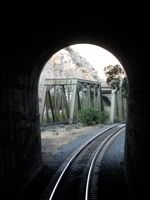Posted by Nitin Mangtani, Lead Product Manager, Enterprise SearchA flurry of media and market interest in enterprise search makes us glad we're instead focused on the user experience in search. On Monday, January 21, 2008, Microsoft offered to buy FAST Search & Transfer, for $1.2 billion. Coupled with recent
multimillion-dollar investments by Intel and SAP in the enterprise search vendor Endeca, these moves suggest the extent to which many are scrambling to fill out their existing enterprise search offering.
Others have taken a different approach. In a moment of deja vu, we discovered that another enterprise search player, Autonomy, has recently circulated a white paper about the Google Search Appliance called "Google in the Enterprise." This new document competes with Autonomy's
earlier effort to portray us as something we are not.
Before we clarify some of the significant inaccuracies of this white paper, we'd like to point out that all the market movement in enterprise search hints at what we've known since launching the
Google Search Appliance five years ago: The key to coming out ahead lies not in any FUD-fueled sales strategy or multimillion-dollar investment in traditional technology, but in the realization that there's a revolution afoot.
This revolution is making information easier to find, share, and deliver to everyday workers. This brave new world means responding to business demands with products that deploy quickly and update simply, so users can access the information they need to be productive -- all without having to spend a fortune. Low upfront and deployment costs are the name of the game. And searching for information behind the firewall
can be as easy and powerful as searching for information on Google.com.
Now on to the fine print. Here are a few corrections to the Autonomy white paper we'd like to make: 1.
Comprehensiveness: Autonomy states that the Google Search Appliance "does not index all your critical content." On the contrary, the Google Search Appliance was designed to search all critical content in the enterprise, including file shares, intranets, databases, and real-time business data - all from one simple search box. The Google Search Appliance also comes equipped with on-board content connectors, such as those for SharePoint and Documentum, and the content connector framework, which is a published, open source framework that provides flexibility for anyone -- customers, SIs, ISVs -- to rapidly extend the reach of the Google Search Appliance.
2.
Security: The paper states that the Google Search Appliance's "security features are not sufficient for enterprise use." In actuality, the Google Search Appliance provides two levels of security; first, the Google Search Appliance provides out-of-the-box support for multiple security access control systems (such as SAML standards, SSO, NTLM, etc.). Secondly, the Google Search Appliance supports document-level security with all content sources, which ensures that end-users see only those documents in the results list to which they have access.
3.
Relevancy: According to hundreds of search relevancy and judgment tests that anyone (competitors or prospects) can run from the National Institute of Standards & Technology, Google's enterprise search precision and relevancy are the highest in the industry. Our relevancy has been put to the test in thousands of enterprise deployments around the world and more than 50% of our customers switched to Google because of our higher relevancy.
4.
User Experience: While we couldn't find the words "user experience" anywhere in the Autonomy paper, Autonomy claims that the Google Search Appliance "does not offer the advanced retrieval or automatic information operations required by the enterprise." The Google Search Appliance does offer advanced operations; however, we've made sure to keep interfaces fast and easy to use. According to usability expert Jakob Nielsen, "the search front end should make searching the intranet effortless" and "a company with poor intranet usability would
save $3 million per year if it improved its intranet usability to an average level. And a company with average intranet usability would save $2.4 million per year if it improved its intranet to the usability level found in the best 25%." We think he's on to something.
Finally, Autonomy mentions that the Google Search Appliance "capabilities are still being honed." This is certainly true: We are constantly working to improve the appliance, to make sure it offers ever increasing relevancy out of the box. The fact is that we employ thousands of engineers focused on search relevancy and quality. In addition, we are the fastest innovator in the industry. In the last three months alone, seven new
Google Enterprise Labs experiments have been launched (by Google, not third parties as Autonomy claimed) to enhance the enterprise search experience.
Although the above list is by no means thorough, we feel it's important to clarify misinformation about enterprise search. Ultimately, it might be better to let our products and our
customers from all industries do the talking. It's a brave new world in enterprise search, and we're already deeply engaged in it. How about you?

























